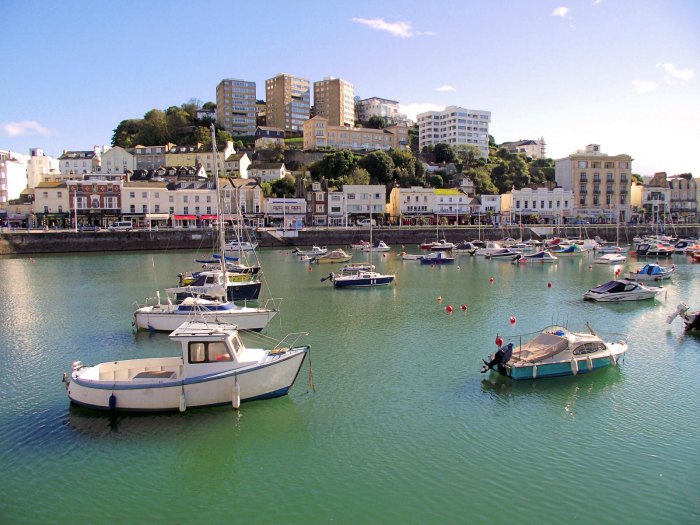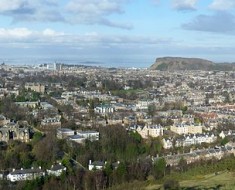We visited the English Riviera town of Torquay at the weekend. It has a population of 63,998, The entry in Wikipeadia suggests that if it was added to the whole unitary area of Torbay, it might then be recognised as a city, and if so would be the 45th largest city in the U.K.( Currently there are 66 cities in the U.K) Brighton with only a slightly larger population was apparently granted city status in 2000. Clearly the entry and the desire to have what nearby Brighton has already got, was posted by a Torquay devotee!
So I have been looking at the criteria in the U.
K. for city status. Traditionally before status was granted (notionally by the monarch), it all had to do with the Church of England. There had to be a cathedral and a bishopric but that is no longer the case. Applications are addressed to the Home Office. An official policy of 1907 contained three criteria : there had to be a minimum population of 300,000, a good record of local government and a strong local metropolitan character as the centre of a wider area.
I don’t know how long that criteria obtained but according to a memorandum, issued in 1927 it was a well established principle that the title was only granted to towns of the’ first rank in population, size and importance, and having a distinctive character and identity of their own’. In fact, a town can now apply for city status by submitting an application to the Lord Chancellor, who makes recommendations to the sovereign. New grants of city status have been awarded to mark special events, such as coronations, royal jubilees or the Millennium. We can therefore expect a rash of new applicants to mark the Queen’s Diamond Jubilee.
I quoted Lewis Mumford in the first blog in this series, posted on May 23rd 2006.
He sees the rise of the city as indistinguishable from the history of civilisation. Whereas families and then groups of families were primarily into survival, often with shared hunting grounds and religious cults, life in the great eastern cities became more structured and controlled. There people began to develop language and writing, learned to draw, sing, learn, buy and sell, to call upon their gods and relate to each other commercially and within the rule of law.
Heiner Goebbels’ opera ‘Surrogate Cities,’ based on a novel of the same name by Hugo Hamilton ,was performed in London this weekend. Writing in The Guardian, the author says ‘the city is a living thing. It breathes. It keeps the beat. It has trouble sleeping at night. It possesses human energy, human characteristics and human failings.
It has a mind full of idiosyncratic logic, full of memory coming up through the streets, full of shining dreams and homelessness. Even the graffiti is an act of belonging.’
I agree. You just know when a city is a city. It does indeed have a mind of its own., or even a soul. It defines itself. Delightful a place though it may be, Torquay will never be one.
B.R.
Sigue leyendo…




